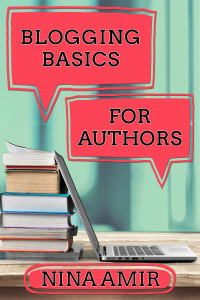Bloggers are a creative bunch. That means you have lots of ideas, but not all of them may be on-topic for your blog. And it’s hard to bring your focus back to the subject at hand when your mind is jumping from one great idea to another, is it not?
Yet, your blog’s success depends on your posts staying on topic. And your readers expect you to continue providing excellent information on one subject—not multiple topics.
Stop Jumping From Topic to Topic
Some say we have become a society that suffers from chronic Attention Deficit Disorder. Indeed, there is evidence that suggests that our ability to focus has declined rapidly since Y2K. According to Time Magazine, a 2014 study conducted by Microsoft proved, “Since the year 2000 (or about when the mobile revolution began), the average attention span dropped from 12 seconds to eight seconds.”
That means even a goldfish has a longer attention span than most humans.
If your blog post topics jump around, like your interests or ideas, your readers won’t stick around long. Remember, their attention span is short, too, which is all the more reason to rein in your attention and focus on your topic.
So, how do you stay on topic no matter what? Here are a few tips.
Find the Connection Between Your Usual Niche and the Current Topic
Start by finding a connection between your usual niche and current topic. For example, maybe you write a pet blog but feel compelled to write about the Black Lives Matter (BLM) movement. How do you tie the two together?
Perhaps you could talk about discrimination or stereotyping of pets. For example, Pitbulls are widely misunderstood, and many landlords won’t rent to you if you own a Pitbull. Come up with a clever title to pull it all together, maybe something like, “Pitbulls Matter.” But be careful not to alienate your audience by being insensitive to the more significant issue (like BLM).
Possibly, you could find an animal rights group involved in the BLM movement. If so, you could feature them on your site. Or you might discover a group of dog owners who have protested racial injustice together. Their story would make a fantastic on-topic post as well.
Use a Beginning Thesis Statement
Once you’ve linked a seemingly off-subject topic to your blog’s primary subject matter, make the connection clear at the start of your post. In academic writing, thesis statements are used to declare the essay’s main point or theory at the beginning of an essay. Use this same strategy to start your blog post and make good use of SEO keywords.
Place a well-worded, straightforward sentence that includes keywords about your topic at the start of your post. This thesis statement, which declares your post’s topic, will show up on search engines and get your reader’s attention. (See how I just linked the subjects of SEO and academic writing together?)
A thesis that contains a keyword phrase should summarize your topic and main point and be developed or explained in the subsequent text.
Outline the Rest of Your Post
Now that you’ve connected topics and know the main point, outline the rest of the blog post before you write. You can do this by coming up with subheadings.
Divide up the post’s main points by writing subheadings for each and then putting them in a logical order. Try to keep the subheadings interesting, so you’ll keep your audience engaged and reading to the end.
This type of outline helps you know what each paragraph should be about. As a result, you won’t find yourself going off-topic with new ideas as you write and will produce a post that stays on topic and on point.
Remember, your audience doesn’t have the attention to read your ramblings.
Stay on Topic
Once you have a thesis, keywords, an outline based on subheadings, and know what each paragraph will cover, it’s easy to stay on topic. However, if you question whether or not you’ve accomplished this goal, as you write, ask, “Is this on-topic? Does this bit of writing fit under this subheading, or should it go somewhere in the article? Should this paragraph be deleted?”
If you find that you’ve wandered off-topic, don’t fret. Perhaps the content you need to delete will provide a good subject for an entirely separate blog post.
Conclude with a Solid Summary
 In training and education, the idea is to tell them what you will teach them, teach it, then tell them what you taught. It’s pretty much the same with writing.
In training and education, the idea is to tell them what you will teach them, teach it, then tell them what you taught. It’s pretty much the same with writing.
You begin by informing your readers what you’re writing about (thesis), then you tell them (in the body of your blog). Lastly, you tell them what you wrote about with a concluding summary.
Write a paragraph or two to bring it all together. With the “Pitbulls Matter” example above, your conclusion might look like this. “Just as we should appreciate diversity among human beings, we should also respect diversity in dogs. Never presume that certain characteristics are always more prevalent in different breeds. Most behavior is learned in both humans and pets.”
Revise Off-Topic Posts
Now that you have some essential tips on how to stay on topic, review your last few blog posts and see if they stay on subject or need to be re-written. A final edit is essential to every well-written blog post. It should not just be about grammar and spelling. Also, look for places where you might accidentally have gone off-topic or need to bring the subject back around to your site’s primary subject.
If you follow these tips and write posts with this structure, there’s almost no way to find yourself off-topic. You can develop each idea you have—no matter how far afield—with an eye toward your blog’s topic and readers’ interests. That will keep you and your readers interested in what you write.
Remember, being a blogger is a journey that requires constant attention to improving your skills. Staying on-topic is one of those skills. And it’s possible to do so no matter how many crazy ideas pop into your head.
How do you stay on topic no matter what? Let me know in a comment below. And share this post with another blogger!
About the Author
 Beth Bauer is a freelance writer, travel blogger, yoga instructor, and entrepreneur currently working on her third novel. She has traveled to over 20 countries in just the last two years and enjoys life as a digital nomad. She is originally from the Pacific Northwest of the U.S.A., and when she’s home lives on the Long Beach Peninsula with her dog, Ozzie.
Beth Bauer is a freelance writer, travel blogger, yoga instructor, and entrepreneur currently working on her third novel. She has traveled to over 20 countries in just the last two years and enjoys life as a digital nomad. She is originally from the Pacific Northwest of the U.S.A., and when she’s home lives on the Long Beach Peninsula with her dog, Ozzie.
Photo courtesy of Aleksandr Davydov


If you are afraid that you will deviate significantly from the topic or suddenly start a completely different one, write with our AI text generator! talktowalle.com
GREAT POSTING!
THANK YOU FOR SHARING….
check this out amazing website try it out
https://depzo.com/
It’s a perfect start-up guide for a fresh blogger. The topic was very clear and easy to understand. Thanks for the great article.
Nice article! Very Helpful. Thanks for sharing. Keep inspiring us. 🙂